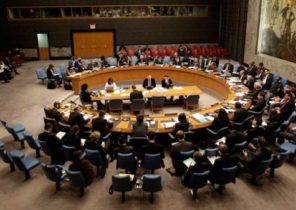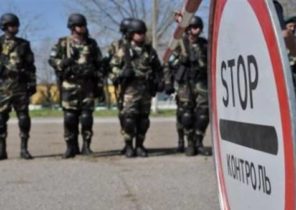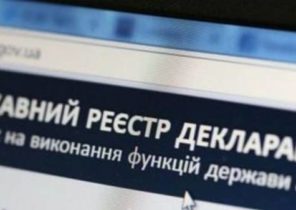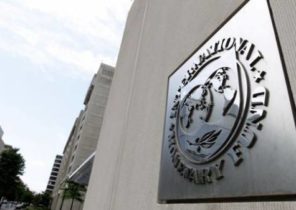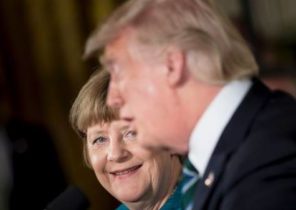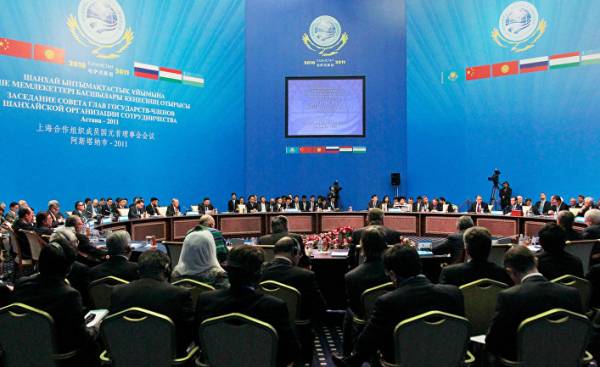
After which lasted for many years talk about the accession of India and Pakistan, they finally were accepted as full members of the Shanghai cooperation organization, which has the potential to expand the geopolitical potential of the SCO, but also to weaken the dominant position of China and Russia. Some experts and officials suggest that this step can contribute to reducing tensions between these two South Asian adversaries.
The accession of India and Pakistan, whose uneasy relationship in the past interfered with the work of other regional associations will be formalized at the 17th summit of heads of SCO member States held in the capital of Kazakhstan Astana. Participating in the event, the President of Kazakhstan Nursultan Nazarbayev called this event “historic.”
Also in the box are the founding members of China, Russia, Kazakhstan, Tajikistan, Kyrgyzstan and Uzbekistan.
SCO is often called nothing more than a club for communication, but the membership of these new members deserves attention, because in these two States there are approximately 1.5 billion people. Thus, on the scale and scope of the SCO will be almost equal among regional associations.
In his comments to the Chinese state news website John Taylor, who teaches at the University of St. Thomas in Houston, said that the entry of India and Pakistan “will expand the geographical scope of the SCO to 70% of the territory of the Eurasian continent, where about half the population of the planet.” Taylor called the SCO “a counterweight to Western organizations of a political, economic and military cooperation.”
However, it should be noted that the animosity between India and Pakistan was an obstacle to the effective implementation of other regional associations in which they were composed. But Irfan Shahzad, a researcher Islamabad Institute of political science, said EurasiaNet.org that this time he expects no repeat of the events that took place in the framework of the South Asian Association for regional cooperation (SAARC) and economic cooperation Organization (ECO).
“As SAARC and ECO have not yet met the expectations, the SCO is becoming a regional organization and forum for the future of Islamabad,” said Shahzad.
As stated at the briefing before the summit in Astana, Director of the Eurasia Department of the foreign Ministry of India Srinivas, he expects that tensions with Pakistan will hurt the unit. “The SCO is a constructive organization. Cooperation in the spheres where there are points of contact, very profitable for all of us. The issues on which we disagree, does not necessarily prevent cooperation,” he said June 7.
Communicating with the Global Times, affiliated with the Communist party of China the Beijing tabloid, an expert on terrorism If way also expressed optimism, predicting that the SCO can reconcile these two States. “India and Pakistan accuse each other of “supporting terrorism”, and this is usually associated with their domestic political agenda and [bilateral] differences, he said. The SCO will support them and, if need be, lend a helping hand, and will not internationalize their disagreements throughout the organization.”
Athar Zafar, research fellow of the Indian Council on foreign Affairs in new Delhi, expressed a similar opinion. “The entry of India and Pakistan in the SCO will strengthen the organization. Risks of any negative impacts on regional integration are minimal, as Pakistan, according to its mandate, the SCO, not be allowed to raise bilateral issues and interfere with regional cooperation, he said. — Increased cooperation in the security sphere through various mechanisms within the SCO can help to reduce the lack of trust among members.”
Before a departure to Astana Prime Minister of India Narendra modi has expressed hope that the SCO will increase the level of cooperation in the spheres of “Economics, communication and the fight against terrorism.” An area where there are the most likely to cooperate, it seems counter-terror.
As full members, from India and Pakistan will be expected to participate in joint military exercises under the auspices of the Regional anti-terrorist structure of the SCO.
According to the Director of the Eurasia Department of the Indian Ministry of foreign Affairs his country is ready to participate in any anti-terrorism military exercise. This will mean that at some point the Indian soldiers will have to train side by side with their opponents — the Pakistani military.
Expert Irfan Shahzad expressed uncertainty about the possibility of similar joint action. “I am somewhat sceptical as to whether the activities under the Regional anti-terrorist structure will affect Pakistan, and what are the consequences for the security of the country in the medium and long term,” he said.
Despite the entry of two new major players, the agenda until explicitly define the dominant bloc States, Russia and China. Yuri Ushakov, the Russian President’s adviser on foreign Affairs, said before the summit that discussions will focus on Afghanistan and the middle East.
According to Ushakov concerning Afghanistan issues will be particularly discussed in the framework of the meetings between the heads of the individual States involved. “The situation there is deteriorating, strengthening the position of ISIS (banned in Russia organization — approx. ed.)” — he told reporters.
At the summit Russia will lobby for the idea of the revitalization of the Regional anti-terrorist structure.
In the framework of the events on June 9 it is planned to sign 11 documents. The most symbolic of them will be the Astana Declaration, which, according to the SCO Secretary General Rashid Alimov, will be “a political Declaration, covering practically all spheres of the SCO activity and the position of heads of States and organizations on key regional and global issues.”


